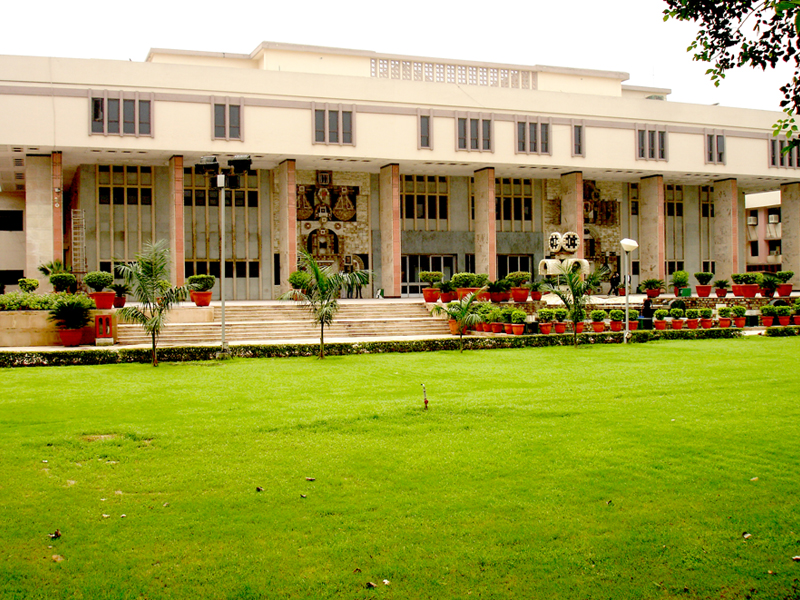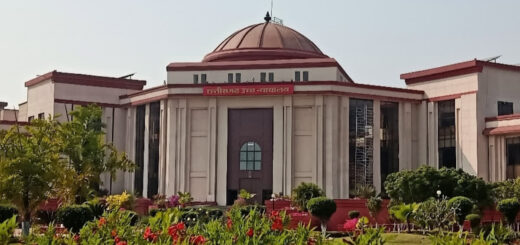The Delhi High Court stated that ‘Last Pay Drawn’ consists of not just the basic salary but also all additional allowances for re-employed pensioners.

The Delhi High Court has confirmed that ‘last pay drawn’ includes all payments, such as CPF contributions, for pensioners who are re-employed. The Court was reviewing a Contempt Petition against the Respondents for not following its earlier orders under Article 215 of the Constitution of India, 1950, and Section 12 of the Contempt of Courts Act, 1971. Justice Dharmesh Sharma noted, “The essence of the previous discussion is that this Court, in its order dated 12.02.2019, later clarified on 08.11.2019, clearly stated that Rule 3(1)(b) and Rule 6(1)(b) include not just basic pay but also ‘all other allowances,’ including dearness allowance. The phrase ‘all other allowances’ is broad and covers various benefits, including government contributions to the CPF.”
The Petitioner was represented by Advocate Tushar Gupta, while Advocate Avnish Ahlawat represented the Respondent. The Petitioners, some of whom retired as Judicial Officers from Delhi’s District Courts and others from the Executive Department of the GNCTD, were appointed as Members of the State Consumer Disputes Redressal Commission and District Consumer Redressal Forums in Delhi. According to the Amended Rules 3(1)(b) and 6(1)(b) of the Delhi Consumer Protection Rules, 1987, upon their appointment, the petitioners could choose to receive salaries based on their last pay drawn minus their pension. All but one of the Petitioners have since received appropriate relief from the Respondents.
The Original Petitioners filed review petitions questioning the legal interpretation of the term “last pay drawn” in the proviso to Rules 3(1)(b) and 6(1)(b). They argued that this term should encompass not just the basic pay but also all allowances, including dearness allowance. Their request was granted, and it was confirmed that “last pay drawn” includes both Basic Pay and all allowances received before being appointed as a Member of either the SCDRC or DCRF. The Petitioner’s Counsel noted that the Petitioner was always willing to contribute to the CPF, but his previous request was denied because the Consumer Protection Act, 1986, and its Rules did not allow for CPF contributions from State Commission members.
The Court stated that the Respondents’ argument was not legally valid. It pointed out that while Rule 4 of the “Contributory Provident Fund Rules” by Swamy applies to all non-pensionable government servants, the Respondents failed to consider the proviso that states: “provided also that nothing contained in this rule shall apply to a Government servant appointed on or after the first day of January, 2004.”
The respondents have notably failed to submit a counter-affidavit. Additionally, the compliance affidavit submitted by Mr. Vinod Kumar, Assistant Director of the Consumer Affairs Department, dated September 4, 2023, relies on information from the Finance Department of the Government of NCT of Delhi and lacks legal validity. Moreover, the respondents in the aforementioned writ and review petitions did not object to the interpretation that “all other allowances” would exclude any government contributions to the CPF, as further noted by the Court. Consequently, the Petition was dismissed.
Cause Title: Narinder Paul Kaushik & Ors. vs. Chief Secretary & Ors.
Appearances:
Petitioner: Advocate Tushar Gupta, Advocate Sumit Mishra, Advocate Parinay Gupta, Advocate
Respondent: Senior Advocate Avnish Ahlawat, Advocate Nitesh Kumar Singh, Advocate Laavanya Kaushik, Advocate Aliza Alam, Advocate Mohnish Sehrawat








